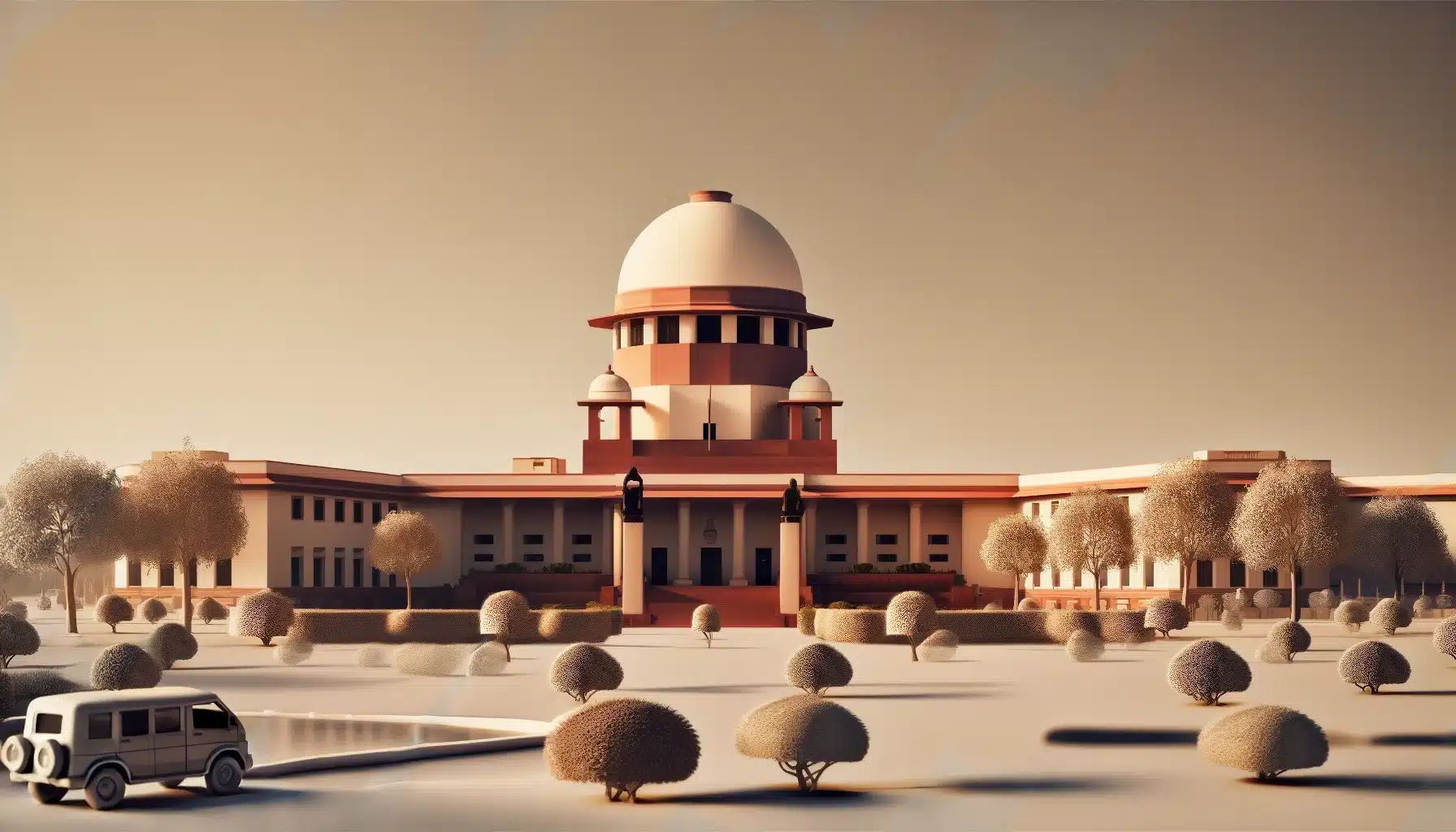The Supreme Court of India has reaffirmed that ‘Stridhan’ is the exclusive property of a woman, and no one, including her father, can claim its recovery from her in-laws without her explicit authorization. The bench quashed an FIR filed by a father seeking to recover his divorced daughter’s ‘stridha

In a significant ruling, the Supreme Court of India has reaffirmed that ‘Stridhan’ is the exclusive property of a woman, and no one, including her father, can claim its recovery from her in-laws without her explicit authorization. The judgment, delivered by a bench comprising Justice JK Maheshwari and Justice Sanjay Karol, has clarified that only the woman herself, whether she is a wife or a former wife, holds the sole right to recover her ‘stridhan.’ This ruling came in response to a case involving a divorced woman’s father who filed an FIR to recover his daughter’s ‘stridhan’ from her former in-laws.
Case Background and Judicial Proceedings
- FIR Filed by the Father: The case originated when the father of a divorced woman filed an FIR against his daughter’s former in-laws, seeking the recovery of her ‘stridhan’—which included 40 Kasula gold and other articles given at the time of her marriage in 1999. The FIR was filed more than five years after the woman’s divorce and three years after her remarriage in the United States.
- Legal Action: Following the FIR, a charge sheet was filed under Section 406 of the IPC for criminal breach of trust and Section 6 of the Dowry Prohibition Act, 1961. The former in-laws then approached the Telangana High Court to quash the proceedings.
- High Court’s Decision: On December 22, 2022, the Telangana High Court refused to quash the FIR, finding the allegations in the charge sheet to be prima facie triable. The accused subsequently appealed to the Supreme Court.
Supreme Court’s Key Observations and Rulings
- Exclusive Right Over ‘Stridhan’: The Supreme Court reiterated that ‘Stridhan’ is the exclusive property of the woman and cited previous judgments, including Pratibha Rani v. Suraj Kumar, Rashmi Kumar v. Mahesh Kumar Bhada, Maya Gopinathan v. Anoop SB, and Mala Kar v. State Of Uttarakhand. The Court emphasized, “The jurisprudence as has been developed by this Court is unequivocal with respect to the singular right of the female (wife or former wife) as the case may be, being the sole owner of ‘stridhan’. It has been held that a husband has no right, and it has to then be necessarily concluded that a father too, has no right when the daughter is alive, well, and entirely capable of making decisions such as pursuing the cause of the recovery of her ‘stridhan’.”
- Power of Attorney Act, 1882: The Court noted that the complainant’s daughter had not granted her father the Power of Attorney to act on her behalf, as per Section 5 of the Power of Attorney Act, 1882. The Court stated, “It cannot be disputed that no such power of attorney, within the meaning of this Act, stood executed by the complainant’s daughter, in favour of her father.”
- Delay in Filing FIR: The Court observed that the FIR was filed with a significant delay—five years after the divorce and three years after the remarriage—with no satisfactory explanation provided for the delay.
- Criminal Breach of Trust: The Supreme Court found that the FIR did not meet the criteria for criminal breach of trust under Section 406 IPC. The Court noted that there was no evidence that the complainant had entrusted the ‘stridhan’ to the appellants or that they had dishonestly misappropriated it.
- Separation Agreement: The Court highlighted that a Separation Agreement between the daughter and her former husband had been executed at the time of the divorce in 2016, which resolved all issues, including the division of personal belongings. The Court observed, “The Agreement included a clause releasing both parties from any further claims, and thus the charge under Section 6 of the Dowry Prohibition Act is not made out.”
Supreme Court’s Final Judgment
- Quashing of FIR: The Supreme Court quashed the FIR and the subsequent criminal proceedings, emphasizing that the law should not be used as a tool for vendetta.
- The Court stated, “We may further observe that the object of criminal proceedings is to bring a wrongdoer to justice, and it is not a means to get revenge or seek a vendetta against persons with whom the complainant may have a grudge…It is also to be noted, in the FIR the authorities are requested to take action against the appellant for not returning the gifts given by the complainant to his daughter at the time of the marriage, however, in the charge-sheet such a complaint turns into a demand of dowry and being pressured into incurring expenses for marriage-related functions. The question that is to be answered is that when the point of genesis is separate and distinct, how does the end result turn into something that is entirely foreign to the point of genesis?”
Click to read: Mulakala Malleshwara Rao & Anr. V. State of Telangana & Anr.





